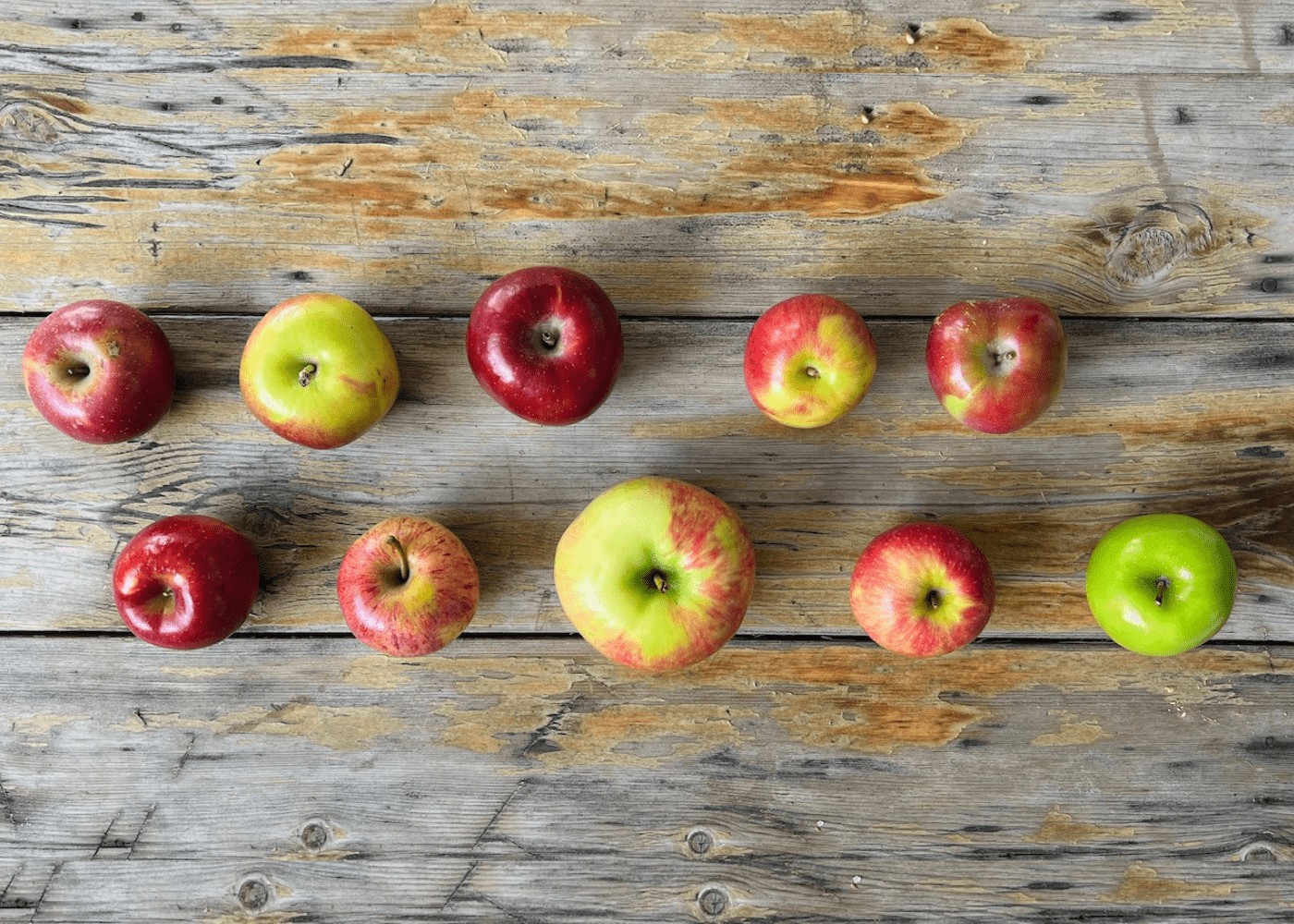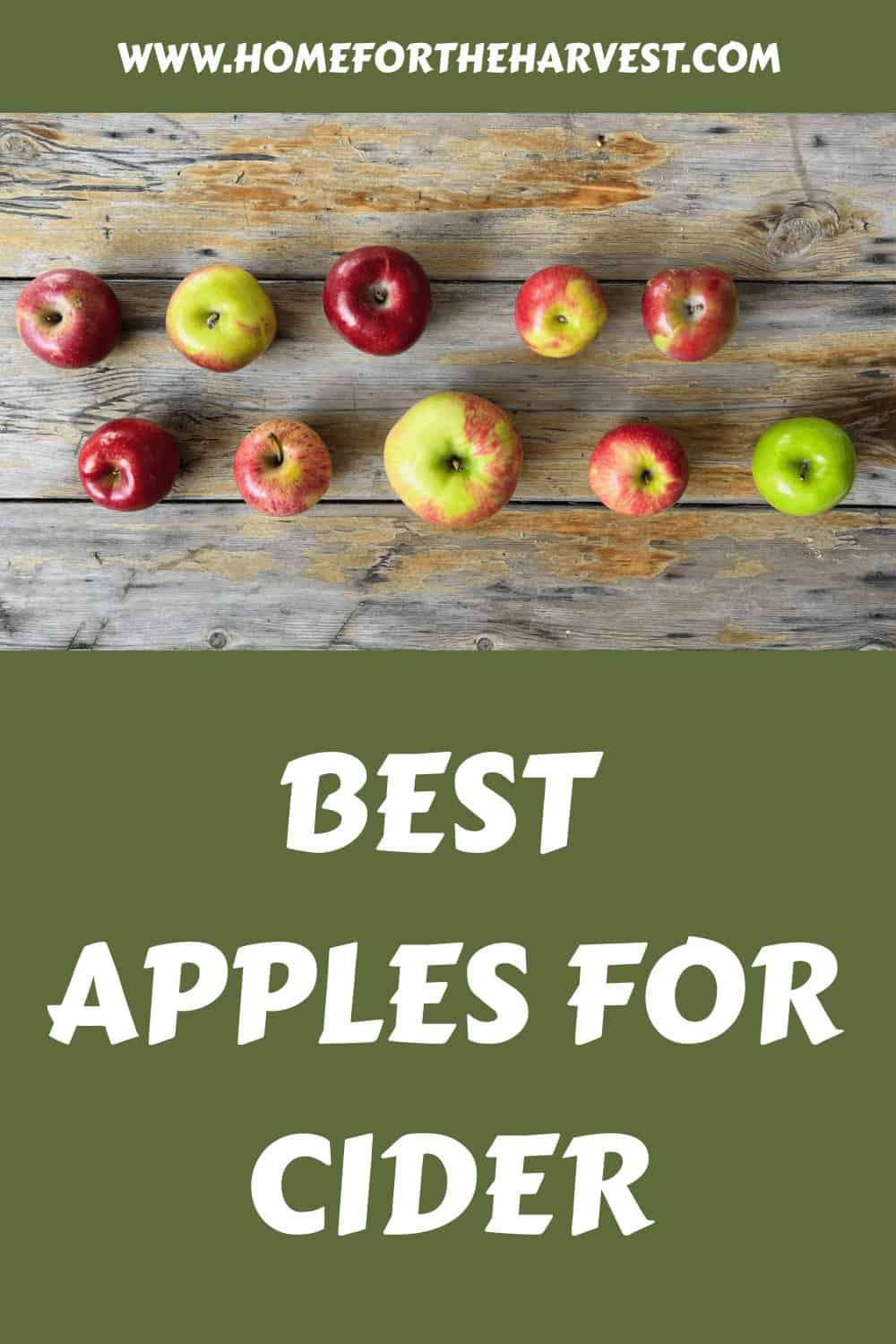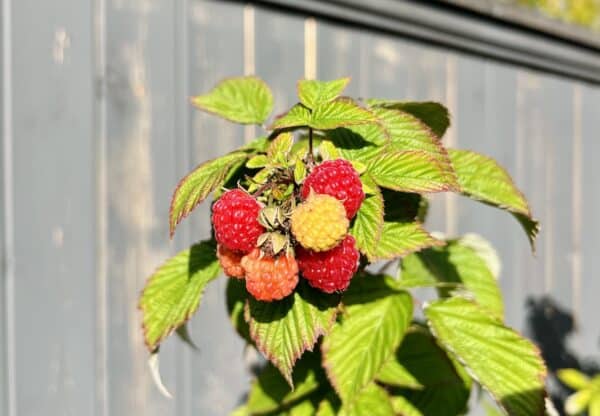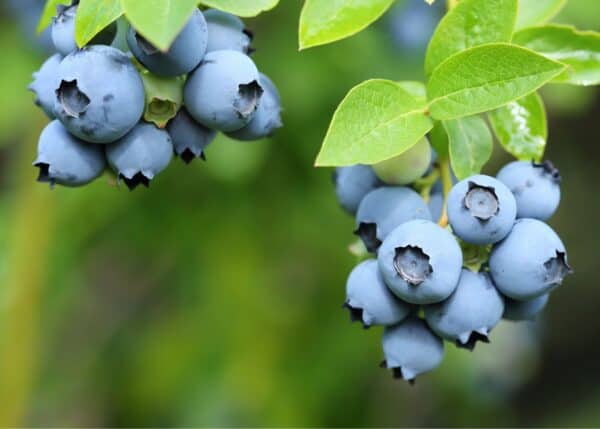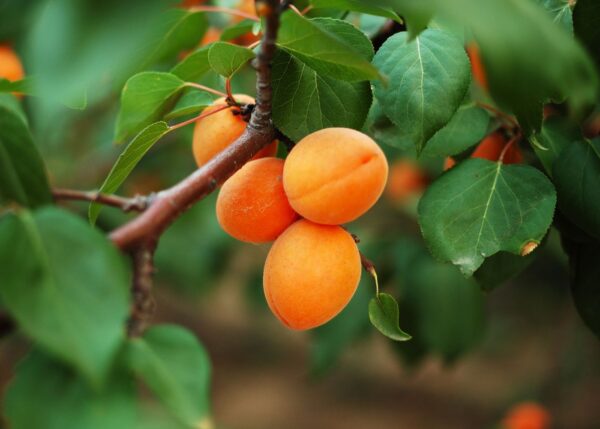The best apples for cider are generally flavorful varieties with a specific profile of sugar, acid, and tannins. While a few select varieties have an adequate balance all on their own, most ciders are made by blending varieties to achieve the desired taste with a balance of sugar, acid, and tannins. Good cider apples are also somewhat overripe, with as much starch converted to sugar as possible.
Cider apple varieties are sorted into one of four categories: sharp, bittersharp, sweet, and bittersweet. Sharp apples have high acidity, while sweet apples have lower acidity. Apples categorized as bitter have a high amount of tannins.
Cidermakers often blend the juices of various apple types that ripen together before starting the fermentation process. Just a handful of apple varieties possess the complete qualities needed to create a well-rounded cider by themselves.
Delicious, well-balanced cider can come from both early- and late-season apples. Yet, ciders made from early-season apples usually have a lower alcohol content compared to those made from late-season apples.
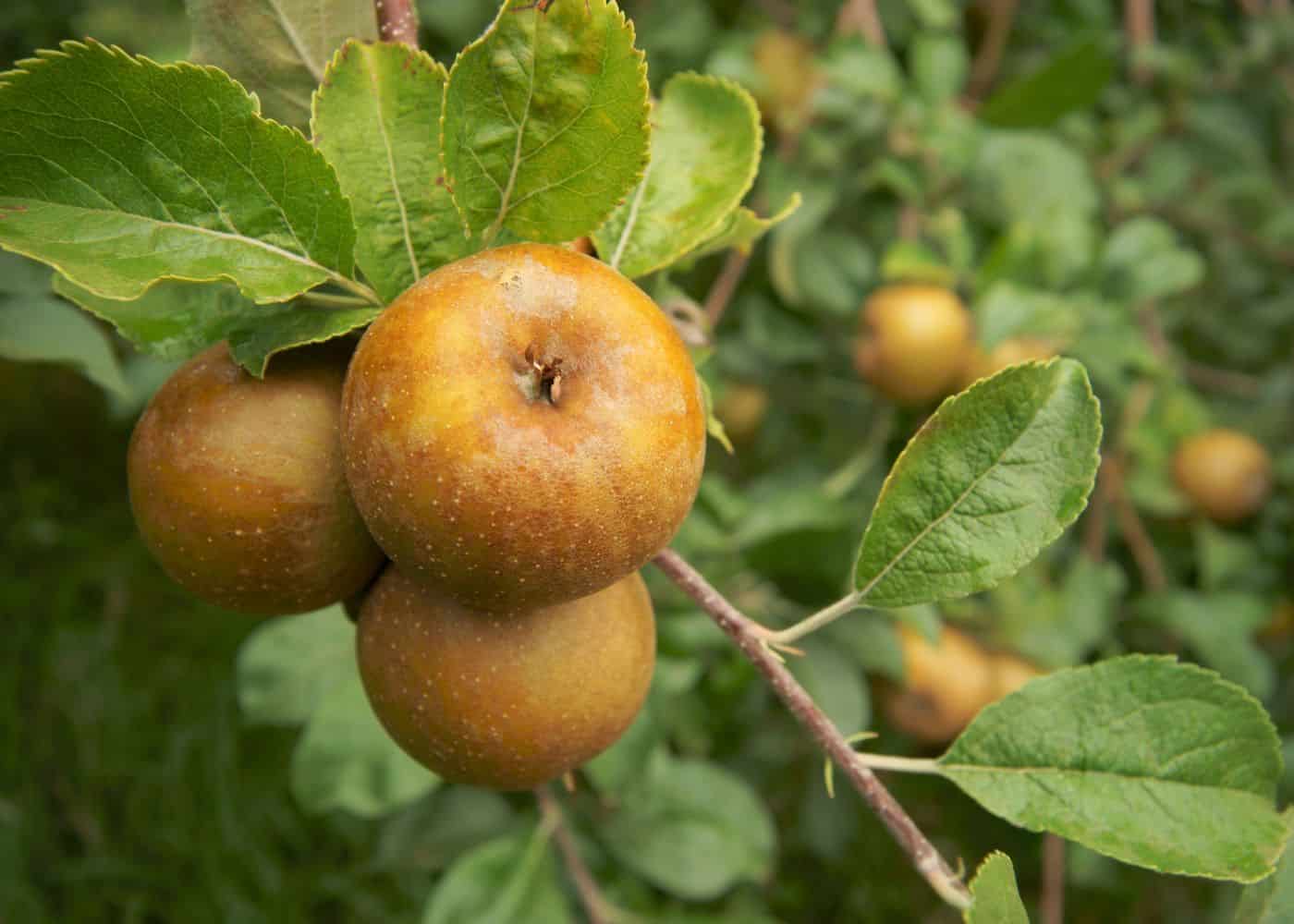
1. Golden Russet apple
The Golden Russet apple is an excellent all-around cider apple with balanced sugar, acid, and tannins. These small russeted heirloom apples from New York have intense, flavorful juice prized by cidermakers.
Using Golden Russet apples for cider gives the cider a full-bodied profile complete with the deep complexity of a truly good cider. The apples have a slight honey flavor that translates well to the cider, making it sweet and enjoyable as a dessert apple cider variety.
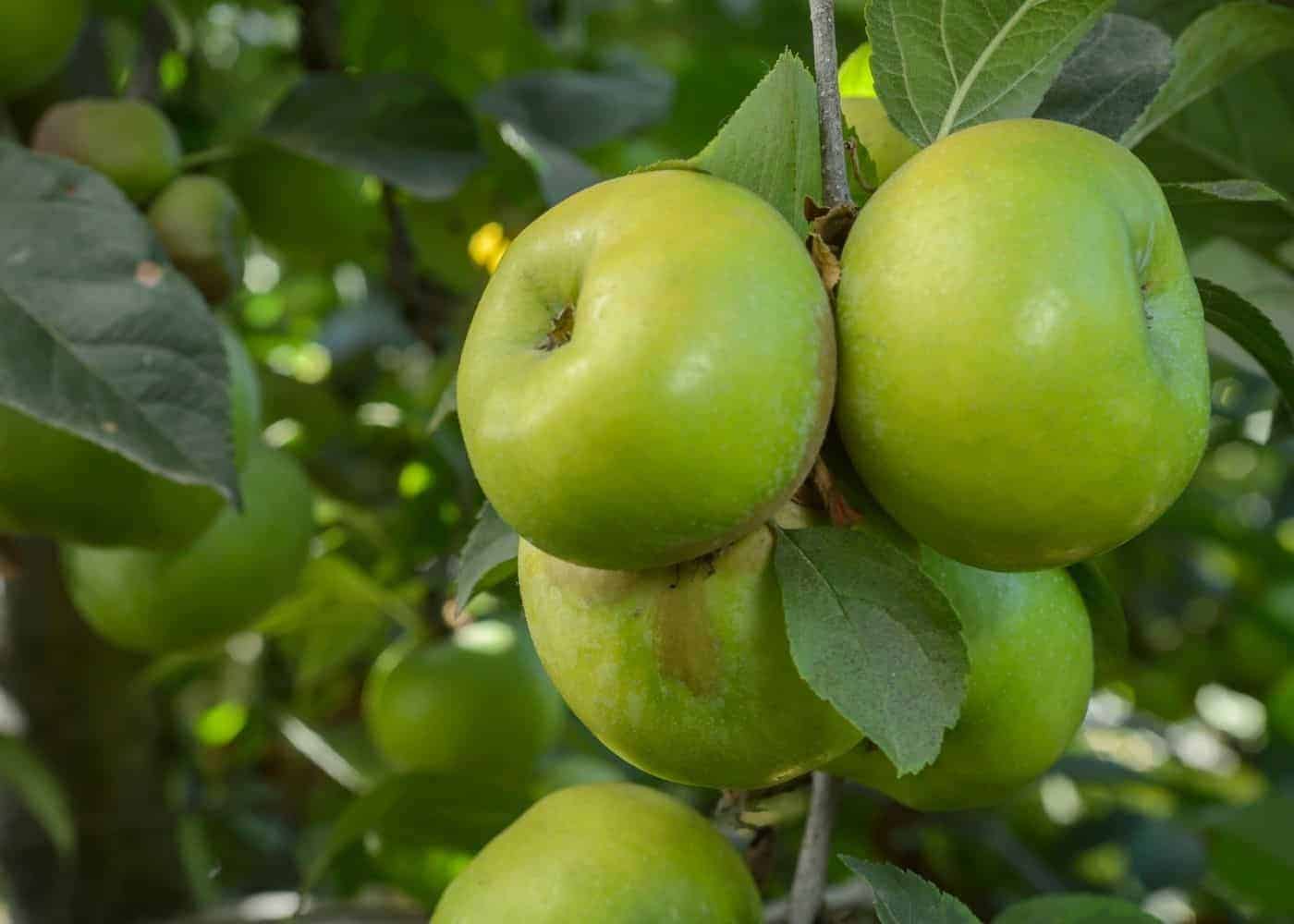
2. Newtown Pippin apple
The Newtown Pippin apple is another well-rounded cider apple with a nice balance of sugar, acid, and tannins. This very old heirloom is not only great to juice for cider, but also makes for a good fresh-eating apple after a month or two in storage.
These heirloom apples are extremely popular among those who love hard ciders. These apples are often used because of their strong flavor. When ripe, they are perfectly round apples with balanced sugar, acid, and tannins. They are both sweet and acidic, giving them a memorable taste.
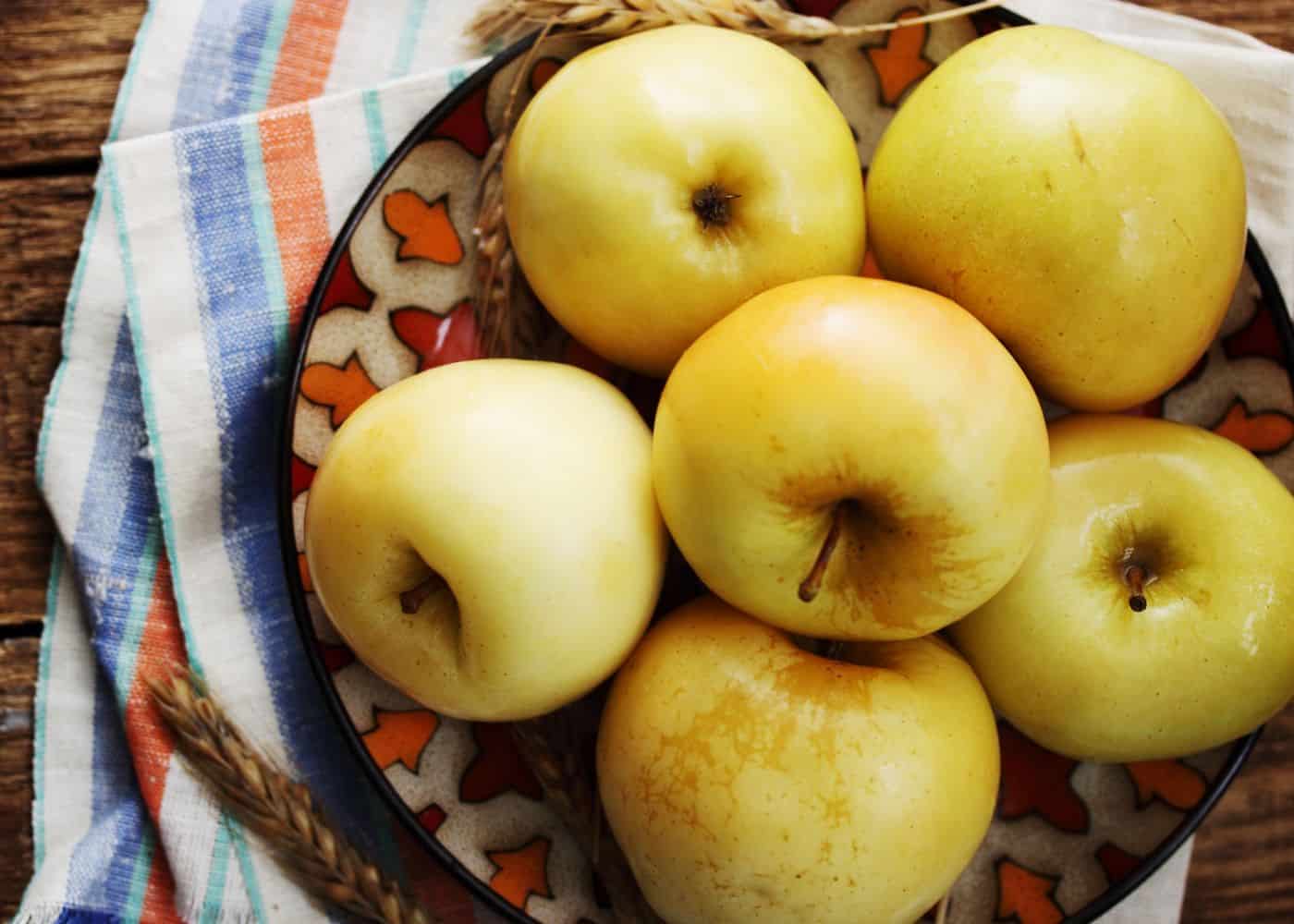
3. Roxbury Russet apple
The Roxbury Russet apple is another balanced cider apple known for its excellent blend of sugar, acid, and tannins. This American classic works very well for sweeter ciders. These crisp and spicy sweet apples are often harvested in September and keep well in storage.
4. Harrison apple
The Harrison apple is a popular old cider apple that’s sometimes even called Harrison’s Cider apple. This is a well-balanced cultivar with bright and dry flesh that is nicely balanced with sweetness, acidity, and tannins.
Unlike most apples, Harrison’s Cider makes a wonderful sharp single varietal. It can also be blended with sweeter are more tannic juices if desired. Harrison’s can add an astringent smoky character to blends.
Once made into a cider, this juice is rich in color and gives off a dry and robust flavor. The cider is full-bodied with a nice finish. These are some of the best apples for cider.
5. Ashmead’s Kernel apple
Ashmead’s Kernel is a sharp cider apple with a bright acidic flavor.
This dessert apple originates in England and makes a lovely cider with a great finish. It is a lovely eating apple but an even better juicing apple. It has a sharp taste that produces cider with bright acids and tons of flavor.
“All cider starts with juice. How and where you get this juice, its quality, its particular characteristics, and its balance of flavors – these are all factors that go into your finished cider”
Modern Cider, by Emma Christensen
6. Esopus Spitzenburg apple
Esopus Spitzenburg apple is another sharp cider apple with a bright and tart flavor.
This spicy apple makes a unique cider flavor. It is plenty sharp with bright acids and tons of flavor. It is one of those cider apple varieties that is refreshing and delicious. It makes a lovely apple cider in the fall. These are some of the best apples for cider.
7. Foxwhelp apple
The Foxwhelp apple is a bittersharp cider apple that’s high in both acid and tannins. While classified as bittersharp, it is not as bitter as some of the other bitter cider apples available. This more juicy variety makes a bright apple cider that can add some tart acidity to sweeter blends.
If you want a musky-flavored cider, the Foxwhelp is for you. This apple makes cider-making a dream because of the simple yet deep flavor. Use these cider apples for a crisp and enjoyable taste.
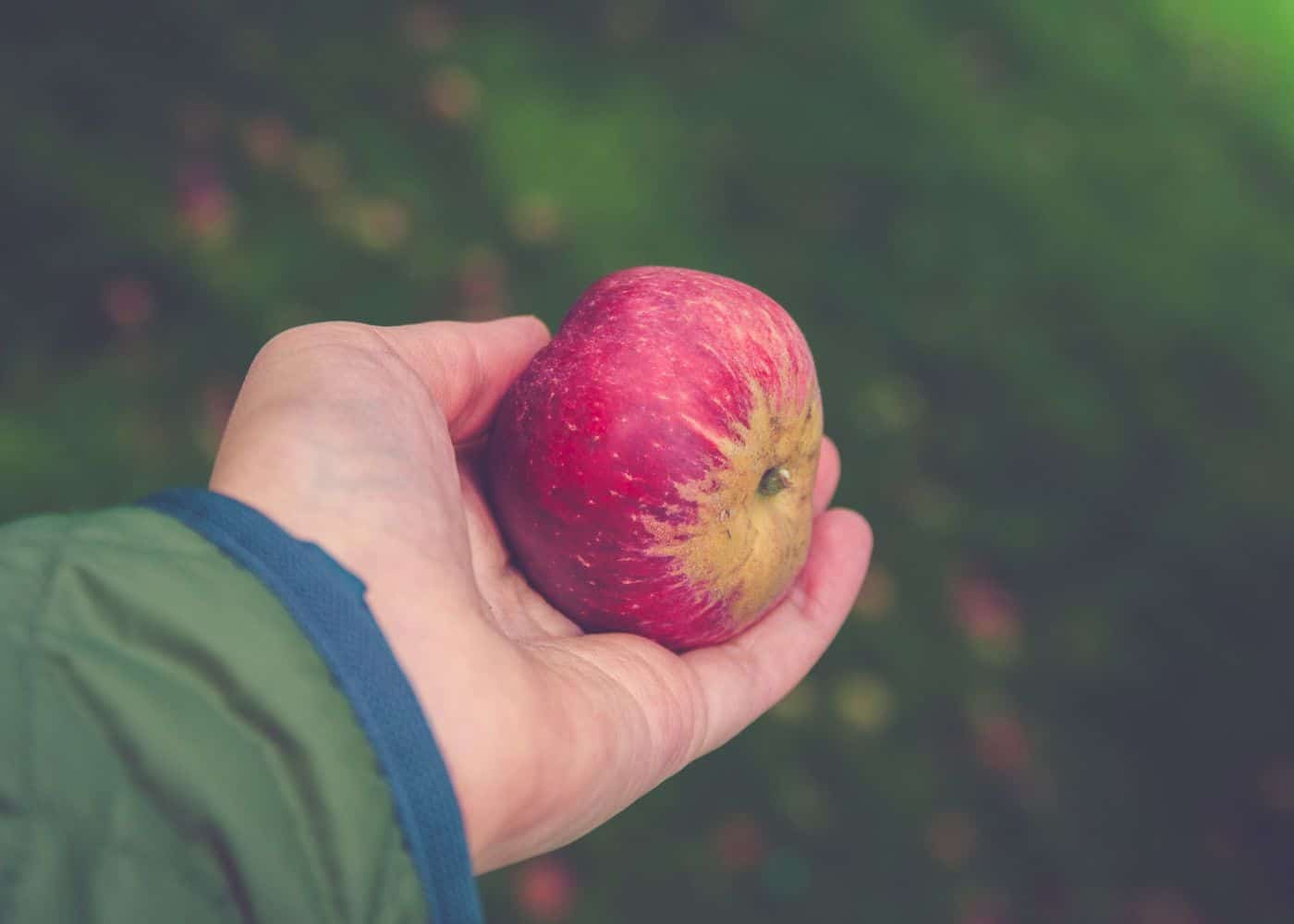
8. Kingston Black apple
The Kingston Black apple is a bittersharp cider apple used traditionally in English apple cider. Like other bittersharp varieties, it is high in both acid and tannins.
This variety gets tons of praise from cider makers. Kingston Black is generally blended with sweeter varieties, but can certainly be used on its own to make a sharp, slightly bitter cider.
9. Dabinett apple
The Dabinett apple is a bittersweet cider apple variety that’s reliable and generally and easy to grow. The bittersweet profile of this cultivar is high in tannins but low in acid. While not good for eating fresh, they make perfect hard cider apples.
Dabinett apples can be used alone for a bitter single varietal but are usually blended with apples lower in tannins, as the juice from Dabinett apples is quite astringent.
10. Medaille d’Or apple
Medaille d’Or apple is a French cider apple with a bittersweet taste profile. The juice is high in tannins, high in sugar, and low in acid. This apple is one of the few exclusively used for making cider, as the fresh fruit isn’t suitable for eating.
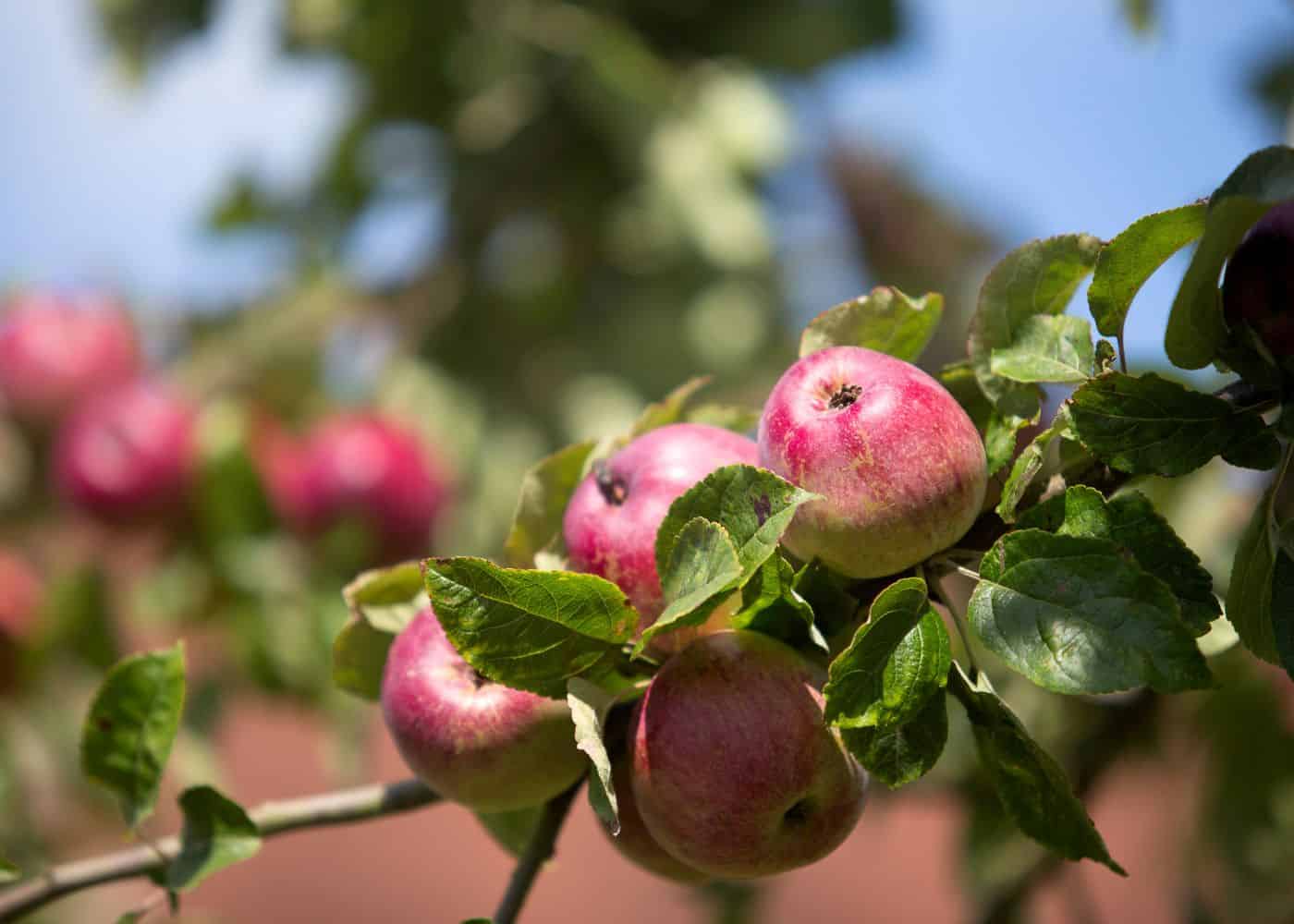
11. Somerset Redstreak apple
The Somerset Redstreak apple is a bittersweet cider variety with high tannins and low acidity. It makes a delicious hard cider. It is mildly sweet but mostly tart in flavor.
12. Yarlington Mill apple
The Yarlington Mill apple is a bittersweet cider apple that’s high in tannins and low in acids. These firm apples are late bloomers but produce a lovely bittersweet taste that is perfect for ciders. They have good sugar levels, producing a mellow cider perfect for fall.
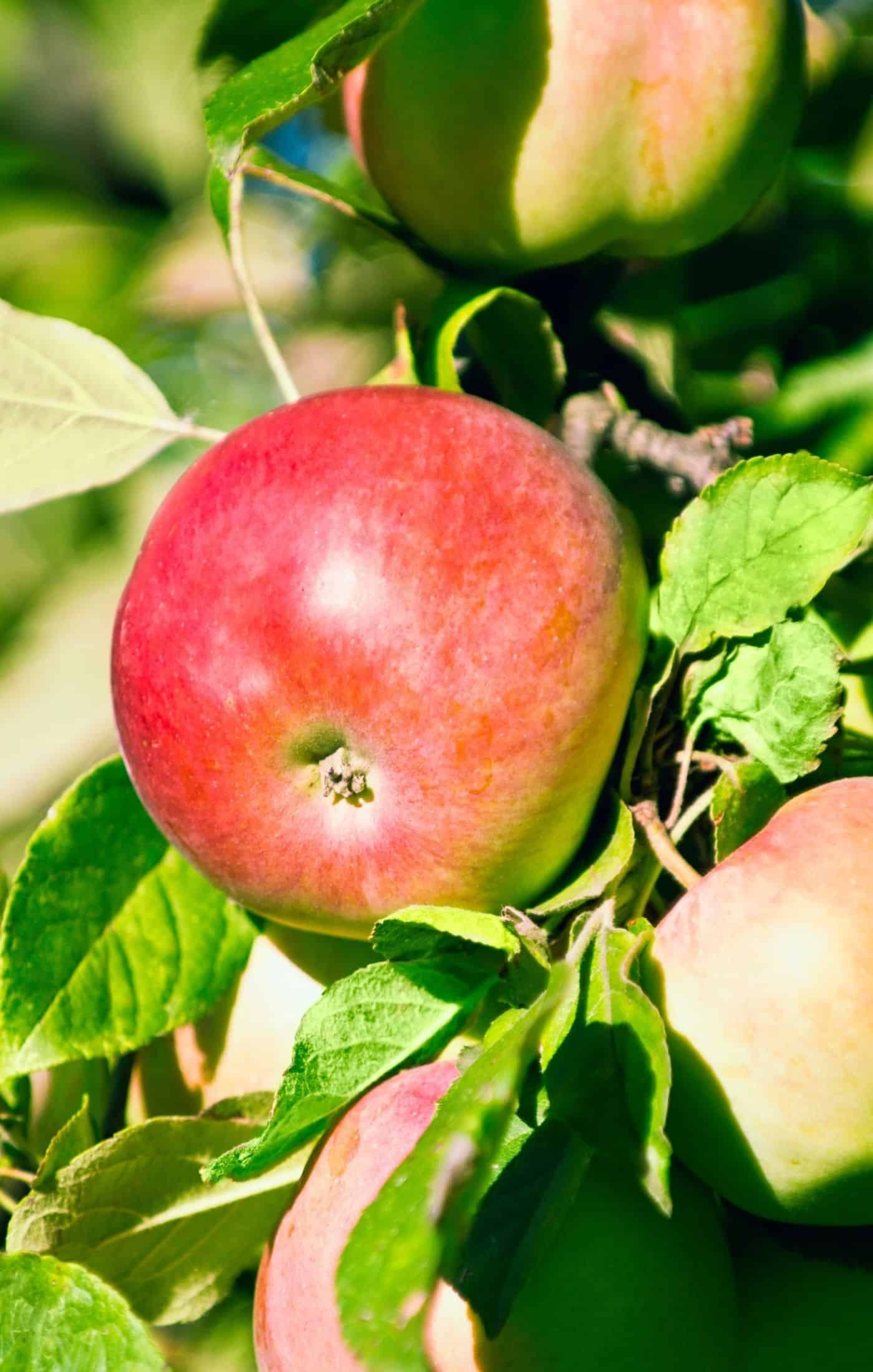
13. Jonathan apple
The Jonathan apple is an American heirloom apple most commonly eaten fresh. This variety of apples is not commonly used for cider but has become a commercial variety that can stand in for specialty cider apples. These apples are tart with a crisp taste, perfect for mixing with other sweeter and more tannic varieties as needed.
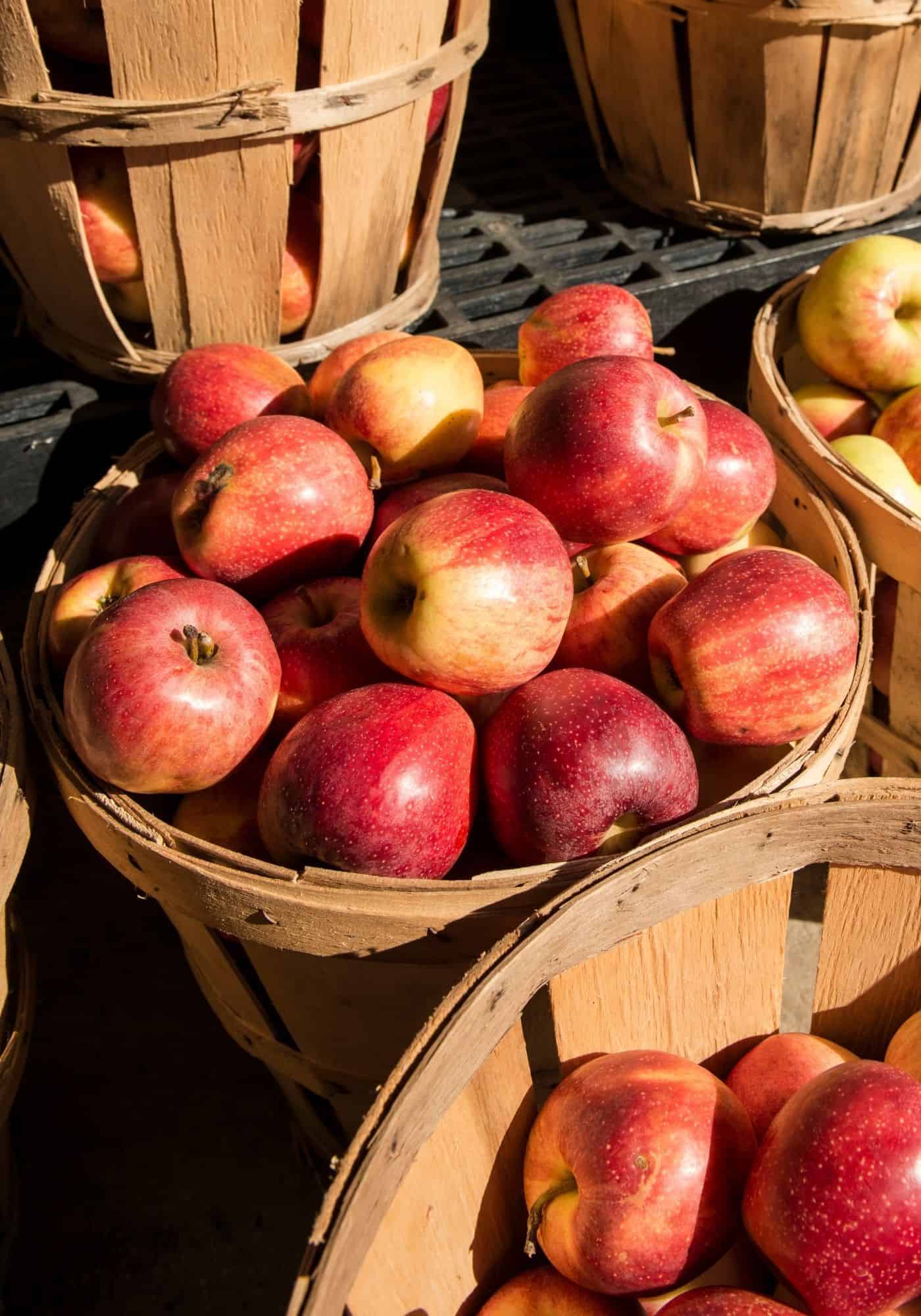
14. Jonagold apple
The Jonagold apple is another fresh-eating variety that makes a good stand-in for a cider apple.
These apples are popular because of their sweet tanginess and tart flesh. They are perfect for creating a tart cider. Just like the Jonathon apples, they weren’t originally used for ciders but have become a commercial alternative for specialty apples as needed.
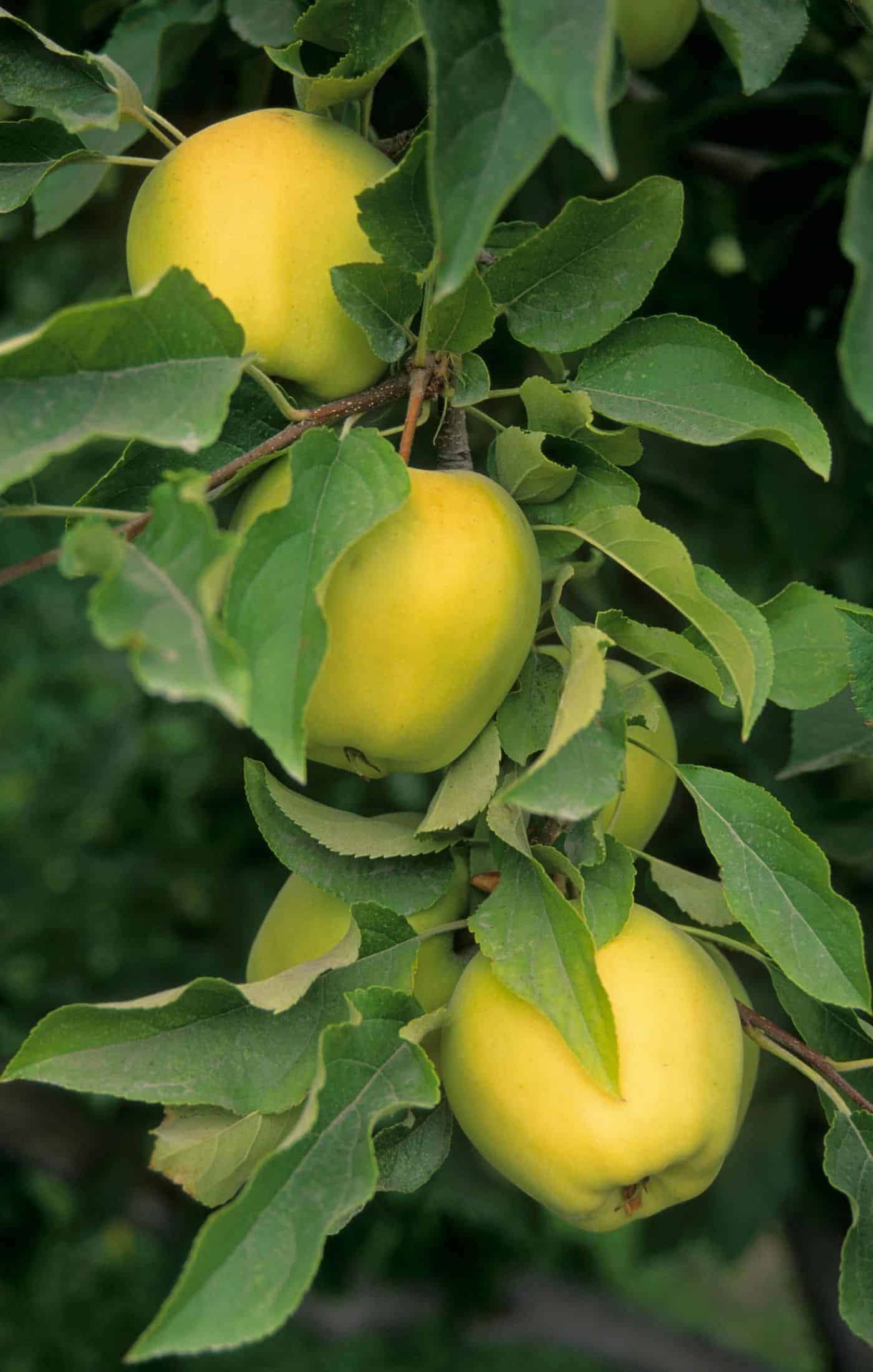
15. Golden Delicious apple
The Golden Delicious apple is perhaps the easiest apple to find at the grocery store if you’re looking for a widely available apple to juice for cider. This variety is most commonly eaten fresh but also makes a decent sweet cider.
This is another commercial variety of apples that replaces specialty apples when needed. It is mildly sweet and packed with flavor. It produces a sweeter cider or apple juice that many people enjoy.
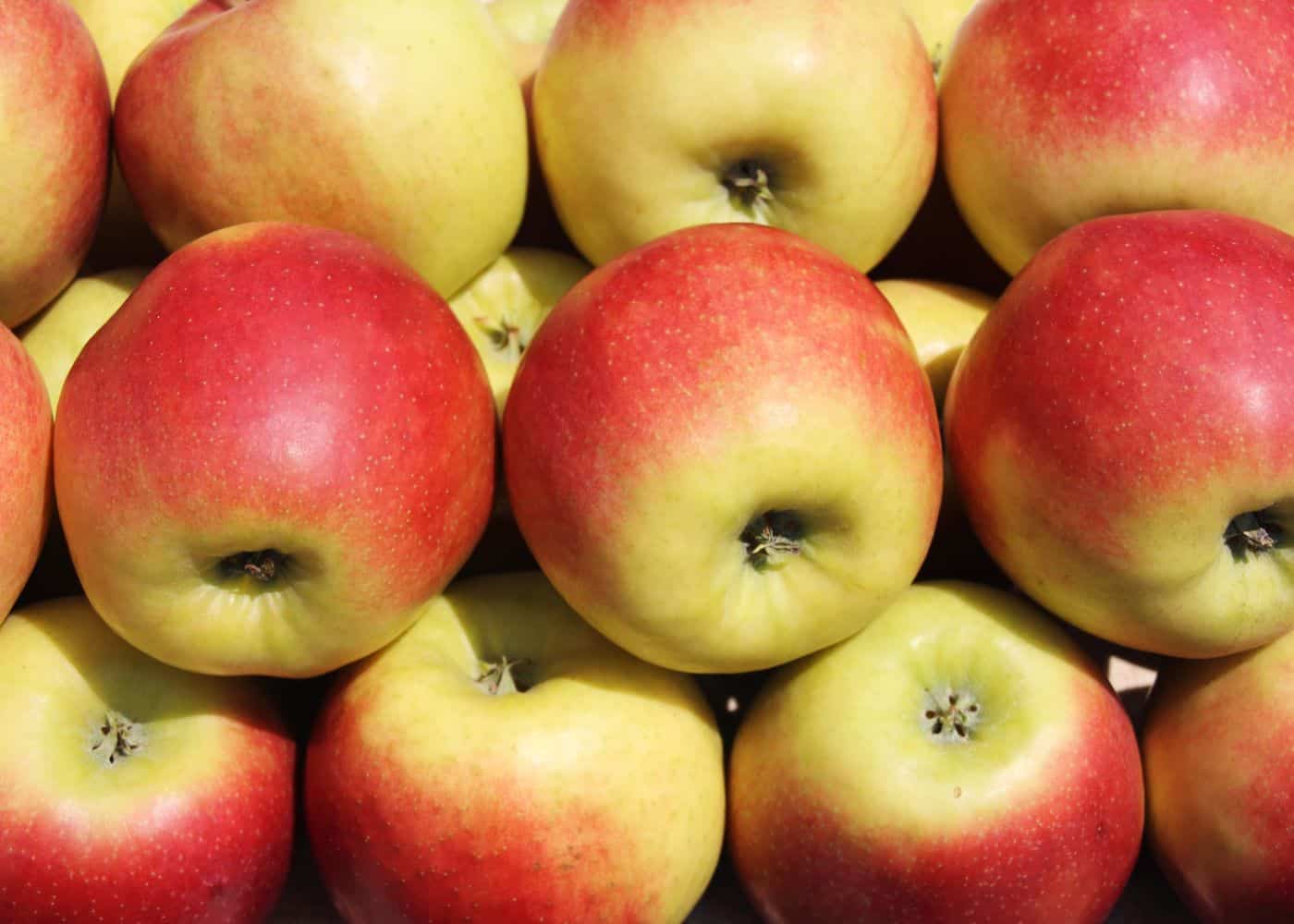
16. Idared apple
Idared apples are brightly colored all-around apples from Idaho. These aromatic apples are wonderful for making cider. They are another commercial apple that can be used for gourmet cider. They have become a fan favorite because of their crisp taste and slight acidity.


